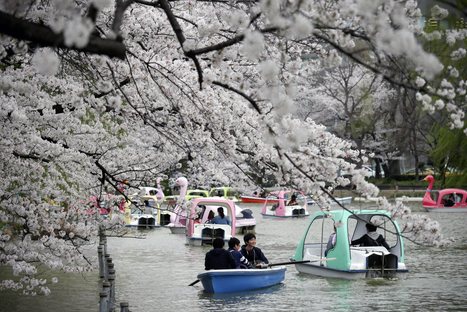“Indonesia’s Greatest Challenge: Cultural Imperialism” brings to attention the visible effects of globalization and privatization in Jakarta, Indonesia, and discusses various aspects of how one culture dominates another. According to the article, American culture began to enter developing regions, including Asia and the South Pacific, during the 1970s. The startling presence of consumer culture like CNN, MTV, Starbucks, McDonald’s, and Hollywood in Jakarta is distinguished as a problem for some, but as a rise toward modernity for others. The article also points out that American media plays the role of reflecting not only the country’s own culture, but the cultures of other countries, and also of creating a worldwide following. People are even conditioned to feel that they can comprise of a wealthier class by embracing American culture. For example, ‘dangdut’ is usually a popular style of music native to Indonesia, but is now being rejected by those wealthier classes of Indonesian media consumers, demonstrating the dangers of cultural imperialism. In fact, the article ends by proclaiming that Indonesia’s cultural diversity is on the line because of cultural imperialism.
What has happened in Jakarta serves as a perfect example of cultural imperialism, the dominance of one culture over another. There is considerable danger in the exportation of American culture to Indonesia and other parts of Asia due to the fact that American culture will become ‘wealthy’ and Indonesian culture ‘poor’. After this transformation, few will want to embrace the latter, which really says something about the importance of marketing and the inseparability of economics and culture. Although the article identifies the problem, it proposes no possible methods of preserving Indonesia’s cultural diversity while still allowing for modernization. Originality versus modernization resembles the familiar conflict between folk culture and popular culture, or between rural and urban ways of life. Indonesia should strive to emphasize the originality of cultural aspects such as music, cuisine, festivities, language and religion. Clearly, Indonesia is in need of some appreciation of its heritage, traditions, and past, before the diverse and colorful Indonesian folk culture is deemed inappropriate by those who have embraced North American popular culture.
(Bey, Daniel. Jakarta Globe. March 3rd, 2012. January 14th, 2013.)
Via
Adam,
Tracey Sarvis

 Your new post is loading...
Your new post is loading...
 Your new post is loading...
Your new post is loading...

























